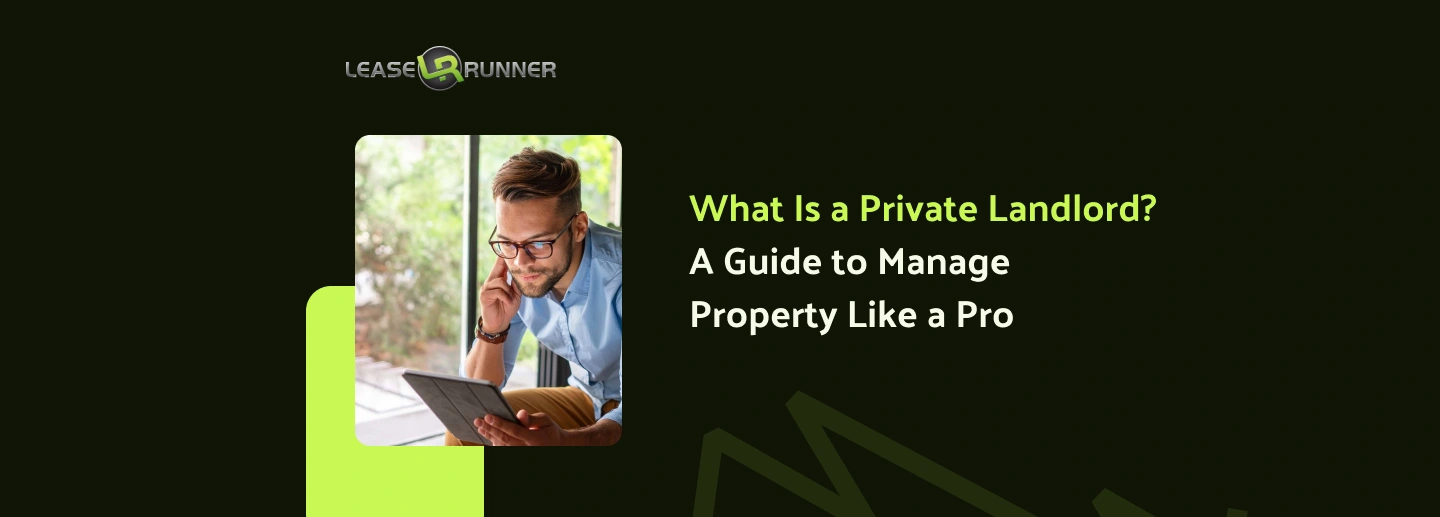Understanding the relationship between landlords and tenants in California means knowing what a landlord cannot do in California. The California landlord-tenant Acts protect tenants from various unfair treatment and illegal actions.
As an example of things landlords cannot do, they cannot raise rent beyond legal limits or enter a rental unit without proper notice. They also cannot evict tenants without following the law.
Whether you are a landlord in California or renting, knowing these rules helps avoid disputes and legal trouble. This guide covers 10 key restrictions landlords must follow, detailing what a California landlord can't legally do. You might want to refer to it. Check them out now!

1. Evict Without Due Process
Landlords in California are prohibited from removing a tenant without following the correct legal steps. This is a core part of California landlord-tenant rights. Following the proper eviction process in California is not just a suggestion; it is a legal requirement.
Before beginning an eviction in California, the state’s landlords must provide the proper written notice based on the California landlord-tenant rights. For instance, the landlord needs to offer a three-day notice to pay or vacate if a tenant misses their rent. For other lease infractions, the circumstances may call for a 30- or 60-day notice.
Illegal “Self-Help" Evictions
An illegal self-help eviction happens when a landlord takes matters into their own hands to remove a tenant without a court order. This includes actions like changing the locks, putting a padlock on the doors, taking a tenant's belongings from the unit, shutting off utilities like water or power, or using threats and intimidation.
Such actions are illegal because they violate a tenant's right to peaceful possession of the property. A landlord must not resort to these tactics, no matter how frustrated they are with a tenant. The legal system is in place to give a fair and structured way to solve disagreements. An eviction without a court order is strictly forbidden.
If a landlord attempts this, a tenant can sue for damages, including for wrongful eviction. The tenant may also get a court order to get back into their home. The tenant may also recover financial losses for damaged property, costs for finding a new place to live, and even legal fees.
Eviction Without Just Cause
In many parts of California, particularly for properties covered by Assembly Bill 1482, rent control, a landlord is prevented from evicting a tenant without a valid reason. This is known as a just cause eviction in California.
These laws protect tenants who have lived in a unit for at least one year. The “just cause" must be one of the reasons listed in the law. For example, a few legal reasons are not paying rent, causing problems, or doing illegal things in the home.
This law distinguishes between “at-fault" and “no-fault" just cause evictions. An at-fault eviction is based on a tenant's action. A no-fault eviction happens when the landlord needs to take back the property for a specific reason, such as a major remodel. Even with a no-fault eviction, the law requires landlords to provide relocation help to the tenant. This is usually equal to one month's rent.
Retaliatory Eviction
A landlord is prohibited from engaging in a retaliatory eviction. This is an attempt to remove a tenant in response to them exercising their legal rights. For example, a landlord may not try to evict a tenant who complains to the health department about habitable issues. The law presumes an eviction is retaliatory if it happens within 180 days of the tenant's protected action.
A retaliatory eviction is illegal and can be used as a defense by a tenant in court. If a court finds the landlord's motive was retaliatory, the eviction will be blocked. The landlord may also face fines.
Tenant Protections and Consequences for Landlords
Tenants have the right to a fair process and a chance to defend themselves according to the California landlord-tenant laws. Landlords who attempt to evict by changing locks or shutting off utilities are violating the correct procedures. These unlawful activities might result in landlord fines and lead to eviction dismissal. Understanding these landlord limitations in California law is crucial for compliance.
2. Discriminate in Any Form
A landlord is prohibited from discriminating against a person based on a protected trait when renting or managing a property. This is a core part of the California law for tenants, which aligns with both state and federal fair housing laws. The list of protected classes is extensive and includes race, color, religion, sex, sexual orientation, gender identity, source of income, and disability.
Discrimination Based on Source of Income:
It's against the law for a landlord to refuse an applicant simply because they receive government money. The landlord must look at the application based on the total income, including the government subsidy.
Discrimination Based on Familial Status:
A landlord is not allowed to refuse to rent to families with children under 18. This also applies to a pregnant person. This protection also means a landlord may not set a maximum number of children for a home.
Discrimination Based on Disability:
A landlord must not deny an applicant with a disability if they are otherwise qualified. This includes providing reasonable changes, which we will discuss later.
Discrimination Based on Sexual Orientation or Gender Identity:
It is illegal to deny an application or to bother a tenant because of their sexual orientation or gender identity. A landlord may not refuse to rent to a gay couple, for instance.
Discrimination Based on Race, Color, or Religion:
These are basic protected classes under fair housing laws. A landlord must not use any of these factors to make a decision about a tenancy.
Legal Consequences and Tenant Protections
Engaging in illegal property management practices in California can lead to lawsuits, fines, and penalties. Tenants who experience discrimination may report it to the U.S. or the California Department of Fair Employment and Housing.
Discrimination compromises renters and puts landlords in legal hot water and penalties. It may also harm a landlord's business and sour their reputation. Therefore, knowing what a landlord cannot do in California is essential for running a fair and successful rental business, and a clear understanding of what questions can you not ask a potential tenant can help you avoid mistakes from the start.
3. Raise Rent Illegally in Rent-Controlled or AB 1482 Properties

A landlord is prohibited from raising the rent beyond what is legally allowed. While some local ordinances have been in place for years, Assembly Bill 1482 rent control introduced a statewide cap on rent increases in 2020.
This law, also known as the Tenant Protection Act, applies to most homes in California. The law's rent increase cap is 5% plus the percentage change in the cost of living, or 10%, whichever is lower. The rent increase cap 5% plus CPI (Consumer Price Index) has been the common increase amount in recent years. This is a huge shift in the power dynamic for tenants and landlords.
Landlords must also provide proper written notice of any rent increase. This notice must be given at least 30 days ahead for increases of 10% or less, and 90 days for increases over 10%. Some local areas have even stricter rent control California notice rules. When determining the proper rent-to-income ratios for your property, you must take these caps into account. Landlords are not permitted to simply ignore these rules.
Legal Consequences of Illegal Rent Increases
A landlord cannot enforce a rent increase that is illegal. If you raise the rent above the legal limit, the tenant does not have to pay the extra part. The tenant can pay the legal amount and tell the landlord they are breaking the law.
They can also take legal action to get back any money they overpaid. We at LeaseRunner can help you get a clear look at your income verification and cash flow report to ensure you are following the law.
The legal effects of an illegal rent increase can be bad. A tenant can sue the landlord to get back the rent that was collected wrongly. A court may make the landlord pay a penalty. A landlord cannot try to hide these increases or use illegal fees to get around the law. We believe in clear records, which are key in these cases.
The law also stops a landlord from trying to evict a tenant for not paying an illegal rent increase. This is seen as a retaliatory eviction. For example, if a landlord tries to raise the rent by 15%, the tenant only has to pay the legal amount. If the landlord then serves an eviction notice for not paying, the tenant can use the illegal increase as a defense. This is another key example of what a landlord cannot do in California.
The rules for a month-to-month rent increase in California are also different from a fixed-term lease, and both require proper notice.
4. Hold or Deduct Security Deposits Without Just Cause
A landlord is prohibited from keeping a tenant's security deposit without a valid reason and proper paperwork. Under California law for tenants, the security deposit is the tenant's money until it is proven that the landlord has a legal claim to it. A landlord is not allowed to use the deposit for just any purpose.
Security deposit deductions in California rules for renters allow landlords to retain security deposits for certain purposes only. Such as for unpaid rent, for cleaning the unit to its condition at the start of the tenancy, or for repairing damage beyond normal wear and tear rental. Our blog on normal wear and tear can help clarify what it is.
For instance, the landlord may cover repairs using the deposit if a renter damages the carpet or puts a huge hole in the wall. However, normal wear, like small nail holes or faded paint, cannot be charged. Landlords should use a clear lease agreement template to help set expectations. These are clear prohibited activities for California landlords.
Required Itemized Deductions and Timely Return
Within twenty-one days of the tenant leaving, landlords have to provide a comprehensive, documented record of all deductions. Every charge should be explained in this list, either with estimates or receipts. If a landlord fails to follow these rules, they may lose their right to keep any portion of the deposit.
This is a specific example of what a landlord cannot do in California and is one of the most common disputes between landlords and tenants.
Tenant Rights and Legal Protections
The security deposit limits in California are another crucial aspect of this law. The one-month rent deposit cap became law with Assembly Bill 12, effective July 1, 2024. For tenancies beginning on or after this date, a landlord is not allowed to charge a security deposit greater than one month's rent. This is a significant change. It used to be a security deposit of two months' rent.
This makes an excessive security deposit a thing of the past. A landlord is also barred from charging certain types of fees. For example, many prohibited landlord fees are illegal in California. This includes application fees that do not cover the actual cost of a background check, late fees that are too high, or fees for services that are not part of the lease agreement. The security deposit must not be used to cover these illegal fees.
5. Neglect Repairs That Impact Health and Safety
It’s important to know that California landlord-tenant rights set clear rules for landlords. They must keep rental homes safe and fix problems quickly. These laws protect tenants from unsafe living conditions and unfair treatment.
Landlords’ Responsibility to Maintain Safe Housing
In California, landlords must meet specific minimum standards to ensure a rental unit is safe and livable. These habitability requirements in California are a cornerstone of the California landlord-tenant act, and failing to meet them can lead to serious consequences for the landlord. Here are some common examples:
- Plumbing: A landlord must fix leaks that can cause water damage or mold. A major leak, such as from a burst pipe, requires immediate attention. A minor but persistent issue, like a dripping faucet, still needs to be addressed promptly.
- Heating: A broken heater during the colder months is a serious issue that makes a unit uninhabitable. Landlords must repair it quickly to ensure the tenant's safety and well-being.
- Mold: A landlord is required to fix the cause of mold and remove it if the mold poses a health risk. Mold can cause respiratory problems, especially for the young or elderly. Landlords must act fast to prevent further spread and protect tenant health.
- Electrical/Wiring: Faulty or exposed wiring is an extreme fire hazard. A landlord must address this immediately to prevent an electrical fire or injury.
The California law for tenants mandates that landlords address these issues within a reasonable period of time.
Legal Obligations Under the California Landlord-Tenant Act
Landlords in California are required to address repair issues quickly to ensure rental units remain safe and habitable. There isn't a single, fixed timeline for all repairs. How quickly a landlord must make repairs depends largely on the severity of the problem.
- Urgent Repairs: For issues that threaten a tenant's health or safety, a landlord must act immediately, typically within 24 to 72 hours. Examples include a broken heater in winter, no hot water, a major plumbing leak, or faulty wiring. These are considered emergencies.
- Non-Urgent Repairs: For problems that don't pose an immediate threat, a landlord has a “reasonable" amount of time to repair. This is generally considered to be up to 30 days after receiving written notice from the tenant. Examples include a dripping faucet, a broken dishwasher, or minor cosmetic issues.
Delays beyond this period may violate the California landlord-tenant act and give tenants legal grounds to withhold rent, make repairs themselves and deduct costs, or take legal action. This holds owners responsible and protects renters from dangerous properties.
Tenants should notify landlords in writing and keep records. If repairs are still ignored, tenants can contact local housing agencies or file a lawsuit. These are powerful tools for tenant rights eviction in California related to habitability. A landlord is not allowed to then try to evict the tenant for using these remedies.
Understanding the differences between rent-stabilized vs rent-controlled properties can also impact the landlord's obligations.
6. Use Harassment or Coercion to Force Tenants Out
Strict guidelines under California landlord-tenant rights must be followed by landlords to handle their renters. Threatening a tenant, either physically or with false legal action, is unlawful and might be considered illegal property management practices in California.
Harassment can take many forms, from physical threats to more subtle actions designed to make the tenant's life miserable. A landlord must not make up false reasons for a just cause eviction in California to scare a tenant into moving. The law protects tenants from these kinds of tactics. These are all landlord limitations in California law.
Examples of Harassment and Coercion
Under California law, landlords cannot coerce or compel renters to leave. Illegal activities include:
- Suddenly cutting off gas, power, or water.
- Changing locks without telling tenants.
- Threatening an eviction without a reason.
- Making frequent, unannounced visits to scare tenants.
These harassment actions remove renters' right to live peacefully. Therefore, it might cause penalties or legal actions directed against landlords.
Tenant Protections Against Harassment
The law protects tenants from retaliation. If tenants report problems or ask for repairs, landlords cannot punish them. No matter whether by cutting utilities or threatening eviction, every payback act is illegal.
To resolve the issues, landlords have to avoid intimidation and honor tenant rights. Lease ends and evictions have to follow legal procedures, including appropriate notifications and judicial clearance. Knowing these rules is key for anyone who is a landlord in California to avoid trouble and keep good tenant relationships. It also helps to avoid the formal process when unpaid rent goes to collections.

Under California landlord-tenant rights, before visiting a tenant's rented apartment, landlords have to abide by rigorous standards. Apart from emergencies, they have to provide at least 24 hours' written notice.
The 24-hour notice entry in California rule is a critical protection for a tenant's right to privacy. The notice must specify a reasonable entry window, the date, and the time. Entry is permitted only during regular business hours, often 8 AM to 5 PM.
Unlawful landlord entry is a serious violation. When a landlord ignores California law for tenants and enters a unit without proper notice or a valid reason, they face significant legal issues. This action is considered an invasion of a tenant's privacy and can be seen as harassment. A tenant can sue the landlord for damages.
Additionally, repeated violations may lead a tenant to break their lease without penalty. In some cases, a court can issue a restraining order to prevent the landlord from entering the property. By violating these California landlord-tenant law restrictions, a landlord not only breaks the law but also damages the landlord-tenant relationship, leading to potential legal and financial repercussions.
Lawful Reasons for Entry
Landlords may enter a rental unit only for specific lawful reasons, as outlined in California Civil Code Section 1954 of the California landlord-tenant act. These reasons balance the landlord’s property rights with the tenant’s right to privacy and peaceful enjoyment of their home. Common lawful reasons include:
- Maintenance or property inspection.
- Displaying the apartment to potential purchasers or renters
- Doing health and safety inspections.
If a renter reports a faulty heater, for instance, the landlord may enter after appropriate notice to repair it. Conversely, in urgent emergencies like a gas leak, fire, or major water flood, landlords can enter immediately without prior notice to prevent harm or damage.
Examples include:
- Fires or smoke inside the unit.
- Severe water leaks are causing flooding damage.
- Gas leaks or carbon monoxide risks that endanger health.
- Electrical faults create fire hazards.
Landlords must act quickly in these cases to prevent injury or further damage, and prior notification is not required for emergency access. However, the entry must be reasonable and limited to the scope necessary to address the emergency.
Tenant Privacy and Legal Protections
California Civil Code Section 1954 protects tenant privacy. Landlords who enter without proper notice or for invalid reasons violate the local laws. Such behaviors might be considered harassment and could result in legal action. Tenants have the right to be present upon arrival and may object to access should the landlord violate policy.
Being a California landlord requires you to respect these entrance rules. It promotes a positive landlord-tenant relationship and helps to maintain trust.
8. Deny Tenancy Based on Family or Disability Status
Under federal Fair Housing rules as well as California's, landlords cannot turn away renters or treat them differently based on their family situation or handicap. This is a clear example of California's landlord-prohibited actions.
This means a landlord cannot refuse to rent to a family with children. A landlord cannot set a limit on the number of children in a unit, as long as the family complies with all occupancy standards. Also, cannot refuse to rent to someone who is pregnant or in the process of adopting a child. This is a form of discrimination that is against the law.
Reasonable Accommodations and Modifications
A landlord must provide reasonable accommodations and modifications for tenants with disabilities. A reasonable accommodation is a change in rules that allows a person with a disability to use and enjoy a home. For example, a landlord cannot refuse to let a tenant have a service animal, even if the building has a “no pets" rule.
These protections are not just for physical disabilities. They also apply to mental disabilities. A landlord cannot be unfair to a person because of a mental illness. This is another example of what a landlord cannot do in California. We believe that fair and equal treatment is a core value of being a responsible landlord.
9. Retaliate Against Tenants for Exercising Legal Rights
California landlord-tenant laws prohibit landlords from retaliating against renters for claiming their legal rights. The tenant may, for instance, set up tenant groups or document required repairs. Retaliation may show itself in many ways, including:
- Increasing rent significantly after a tenant's complaint.
- Reducing services might include turning off storage or laundry access.
- Starting an eviction case without a good reason.
- Stalking renters with intimidation or threats.
If a landlord behaves in any one of these ways shortly after a tenant uses their rights, the law assumes retaliation. Tenants can use this as a defense in eviction cases or sue landlords for damages, including attorney’s fees and punitive damages. Understanding what a landlord cannot do in California is essential for both parties.
Tenant Protections and Legal Remedies
Tenants who experience retaliation should record all landlord activities and maintain honest records of complaints. Under Civil Code Section 1942.5, they may seek legal action or lodge complaints with local housing authorities.
This legislation guards against harassment and the unjustified removal of renters. From there, people may boldly express their rights without regard for consequences.
10. Ban Legal Activities Like Political Signs or Emergency Aid Access

In California, landlords cannot evict tenants for engaging in legal activities. The California law for tenants grants renters the right to display political signs. This privilege extends to signs related to public voting, ballot campaigns, or elections.
California Civil Code Section 1940.4 protects this right. The law allows tenants to place political signage in their yards, on their doors, or in windows of their rental property. This legal protection prevents landlords from using eviction as a way to silence a tenant's political expression.
For instance, a landlord cannot issue an eviction without a court order just because a tenant has a sign supporting a political candidate. This would be a form of retaliatory eviction. The law aims to protect a tenant's right to free speech.
Political Sign Restrictions and Tenant Rights
A landlord cannot arbitrarily remove or restrict political signage. Pursuing this might go against California's unlawful property management laws. Tenants can show their signage 90 days before an election, and within fifteen days after, they should remove it. This right encourages political involvement and free speech.
Access for Emergency Aid
Landlords have to let emergency help providers securely contact their tenants as well. Denying access to medical or social workers breaches tenant rights and may result in legal fines. For instance, landlords cannot limit access to paramedics or social service providers should a tenant need immediate assistance.
Understanding Landlord-Tenant Law in California
As a landlord in California, navigating the complex world of landlord-tenant law is a full-time job. It is not something you can take lightly. The rules around what a landlord cannot do in California are designed to protect tenants from unfair and harmful practices.
Understanding these laws is essential not just for compliance but for building a successful and ethical rental business. The California landlord-tenant act is constantly evolving, with new laws being passed every year.
For example, a law like Senate Bill 611, California has recently brought in new regulations about fees and security deposits, especially for military tenants. Meanwhile, Assembly Bill 1157 rent control, a major topic of discussion, would significantly change the current rent cap, bringing it down to 2% plus CPI, not to exceed 5%.
It would also remove the exemption for single-family homes, making them subject to both the rent cap and just cause eviction under California rules. These proposed changes show that the legal landscape for landlords in California is always in motion, and staying informed is a must.
This is why we at LeaseRunner provide resources to help landlords stay on top of these changes. With our blog on how much the landlord can raise rent, we aim to make property management easier and more compliant. The guidelines for a tenant's income to support a rent of 3 times the rent are a crucial part of smart screening.
Summary
Understanding what a landlord cannot do in California is key to protecting tenant rights and ensuring fair treatment. Other regulations, including the California landlord-tenant act, clearly restrict landlord behavior. Important issues such as maintenance, property access, discrimination, or rent hikes are covered by these rules.
Landlords, for instance, have to swiftly address health and safety concerns and cannot charge more than allowed legally. They cannot harass renters or evict them without following correct legal procedures, either. These prohibited activities for California landlords should be understood by renters as well as landlords to help prevent legal issues and disputes.
If you need more information regarding this issue, feel free to visit our LeaseRunner blog.
FAQs
Q1. Can a landlord refuse to renew a lease in California?
Yes, they can. Usually, 30 to 60 days before the lease expires, a landlord in California may refuse to renew a fixed-term lease if they provide appropriate written notice.
They cannot, however, reject renewal for unlawful purposes like discrimination or retaliation. For instance, a landlord cannot refuse renewal based on the tenant's ethnicity or because the tenant reported necessary repairs.
Q2. What is the maximum security deposit in California?
Under new California legislation, for both furnished and unfurnished apartments, landlords may collect a security deposit equal to one month's rent. Under Assembly Bill 12 (AB 12), this measure becomes operative on July 1, 2024. If your rent is $1,500, for instance, the maximum deposit is also $1,500.
However, small landlords are still entitled to collect up to two months' rent as security. They have to be qualified by:
- Own no more than two rental properties
- Have a total of four or fewer rental units
- Be natural persons or LLCs composed only of natural persons
Q3. How much notice must a landlord give before entering a rental unit?
Landlords under state rules have to provide renters at least 24 hours' written notice before visiting a rental property. This notification has to specify the date, time, and entrance justification. Exceptions relate exclusively to crises, including floods or fires, when quick access is required to safeguard safety.
Q4. Can landlords evict tenants without cause?
Landlords cannot evict without a reason after a renter has stayed in a property for twelve months. The California Tenant Protection Act (AB 1482) mandates that landlords have legitimate grounds for evicting. Among these are nonpayment of rent, lease infractions, or property damage. These are key California landlord-tenant rules and regulations.
Q5. Are rent increases unlimited in California?
Rent increases are not unlimited in California. State law and local rent control ordinances limit rent hikes. Under AB 1482, rent increases are capped at 5% plus inflation or 10% total annually, whichever is lower. This is one of the clearest landlord limitations in California law.







